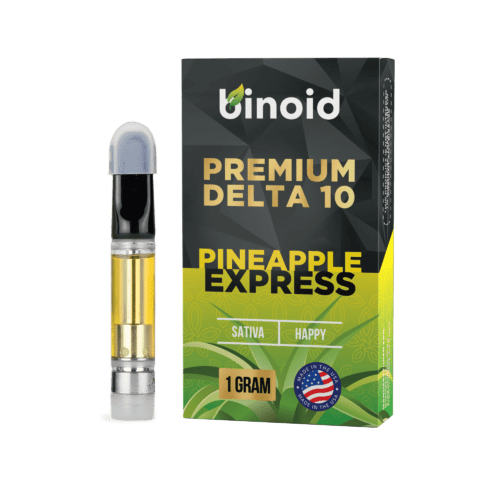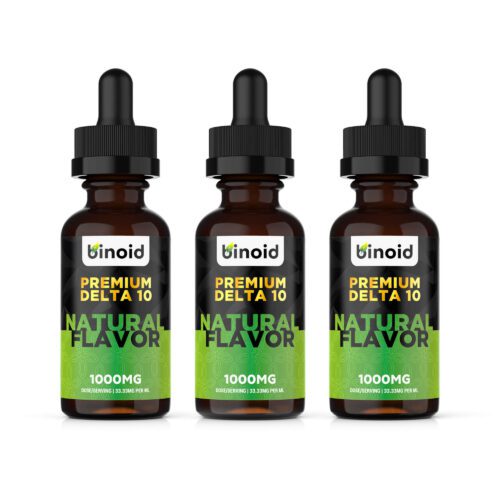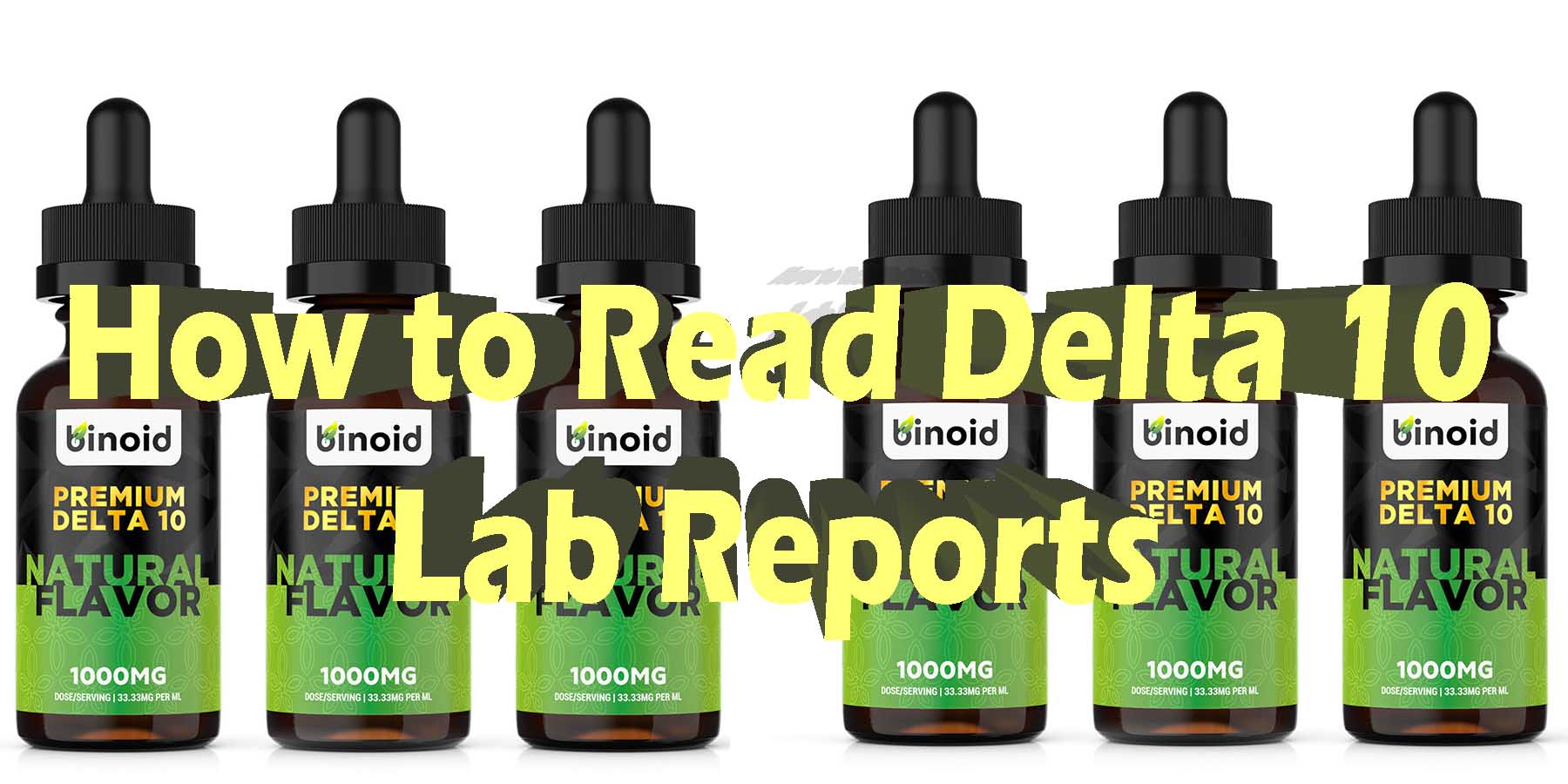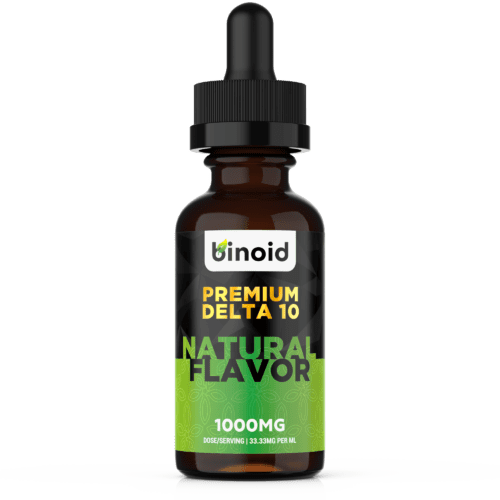The world of cannabinoids is evolving before our very own eyes thanks to more exciting hemp derivatives hitting the market, each with its own unique effects that can answer a different desire that we have when we consume a hemp product. Delta-10-Tetrahydrocannabinol (delta-10 THC) has been around for over a year now, and in that short amount of time, has quickly become a top-seller as far as cannabinoids are concerned.
Delta 10 THC offers distinctive properties often compared to a sativa strain, despite no terpenes being present in most delta 10 products. It can offer something of a refreshing boost, with feelings of euphoria and compatibility with daytime use. But, not all delta-10 products are created equally.
One of the best ways to verify the authenticity, quality, and purity of the delta 10 inside a specific product is by looking at the lab report that came from a third party, which should be made available by the brand on their website.
TO BUY DELTA 10 THC PRODUCTS CLICK HERE
-
Product on sale
 Delta 10 THC Vape Cartridge$26.99
Delta 10 THC Vape Cartridge$26.99$59.99
Why Should You Only Buy Lab-Tested Delta 10 THC?
First, we must urge you to never purchase a delta 10 product that hasn’t been third-party tested. This has become standard throughout the industry, and also aims to ensure that a delta 10 product is federally compliant by containing a maximum of 0.3% delta-9-tetrahydrocannabinol (delta-9 THC). Beyond that, it’s the only way to guarantee that the delta-10 is 100% legitimate and high in quality in terms of its purity level. The lab report also tells you what other hemp compounds could be present in the product.
Lab-testing is performed when a company sends a batch of a hemp extract to a laboratory that is licensed by the state to analyze samples of hemp material. There are certain components of testing that all laboratories follow, such as providing a cannabinoid profile. All of this information tells you that a company is making clean and authentic products that are fine for human use.
Where to Find a Third-Party Lab Report
Any company that manufactures hemp products should offer third-party lab reports for all of their products somewhere on this website. This is usually found in one of two places: either as a link within each product description, or on a separate page where each lab report is listed and can be accessed individually. If you cannot find this information anywhere, you should contact the company and ask where it is. Now, if that said company cannot provide you with a lab report, best to avoid their products altogether.
How Do You Know if a Lab Report is Legitimate When Looking at It?
Fortunately, finding a fake lab report isn’t common – especially not among companies that have a strong reputation for their quality of delta 10 products. But, it does happen from time to time, so to be safe, you’re free to try to verify that a lab report is legit.
- Find the name of the lab at the top of the report, and a reference number.
- Look up the lab online to find out if they are real.
- Also, look for an indication that they are registered with their state.
- Then, if you want, you can also use the reference number to prove that a company had their hemp tested there.
What to Look for When Checking a Delta 10 THC Lab Report
Most brands that sell delta 10 THC offer two parts that can be accessed individually.
Part 1: The lengthier report goes over the purity levels, presence of contaminants, microbes, and more. This is to verify the overall safety of the extract. This is quite important, because it indicates what you may be putting into your body if you are going to consume that product. It’s very detailed, and could even be several pages, with each category marked separately for easy reference.
Part 2: A more abbreviated version which has a breakdown of the chemical compounds present in the sample, which will mainly be a cannabinoid profile broken down by both percentage and milligram.
- The abbreviated lab report gives you a breakdown of each chemical compound present in the sample of hemp, by percentage as well as milligram. Now, this is very important when it comes to delta 10 THC.
- A lot of delta 10 products also contain some delta-8-Tetrahydrocannabinol (delta-8 THC), so don’t be surprised if you see a mix of the two on the lab report.
- There should not be high levels of any other hemp compounds in the lab report, as this would dilute the potency of the actual delta 10 THC that you’re trying to buy.
- Also, rarely will you find CBD in a delta 10 lab report, unless the product is deliberately made with an active serving of cannabidiol along with delta 10.
- You will not likely find terpenes, because these are added separately if a delta 10 product comes in specific strains.
Types of Delta 10 Products and Their Cannabinoids
Each delta 10 product type may have its own cannabinoid profile because of how it’s made, and the general nature of the product, with some coming from whole plant extracts and others coming from pure distillates.
- Vapes: Delta 10 vaping products usually contain no more than a few cannabinoids at most, allowing the delta 10 THC to act as the primary active compound.
- Edibles: Delta 10 edibles often contain a slightly larger variety of cannabinoids than vapes, which support the delta THC’ 10’s ability to absorb into the body through synergy, making up for the lower bioavailability of ingesting cannabinoids.
- Tinctures: Delta 10 tinctures, similarly, to vapes, usually contain a maximum of a couple of cannabinoids, with delta 10 THC being the primary active cannabinoid.
- Dabs: Delta 10 dabs are whole-plant concentrates which will contain all of hemp’s cannabinoids in higher potency levels (milligrams), along with an extra-potent serving of delta 10 THC through the addition of an extract.
- Flower: Delta 10 flower is also naturally full spectrum and therefore has all of hemp’s cannabinoids in it along with an elevated amount of delta 10 THC, which has been added as an extract.
Extra Note: On those lab reports, you will see percentages of cannabinoids for that said product. Usually found on the left-hand side, take notice of the Calculated Yields (percentages) and Total Cannabinoids. Sometimes, there will also be Comments section on the lower right-hand side, basically summarizing or providing additional insight into the product’s reporting.
A Delta 10 Product’s Lab Report Really Does Mean More Than You Think
At the end of the day, the only way to know that you’re getting real-deal, high-quality delta 10 THC is by checking a lab report that comes from a legitimate third-party laboratory. Fortunately, advanced chromatographic techniques allow laboratories to easily identify delta 10 levels in a hemp extract, along with other cannabinoids, in order to tell customers exactly what they can expect. Also, these reports can help customers identify whether or not a delta-10 product contains potentially harmful compounds such as toxins or other contaminants, as well as microbes that should be avoided.
Binoid makes sure that all delta 10 products come with third-party lab reports, as this gives customers the ability to trust that they are getting top-tier delta 10 THC. We supply lab reports that’re easy to find, so the next time you visit the site, make sure to look at our lab reports page to locate all of the information you deserve to know about those fascinating hemp extracts.
TO BUY DELTA 10 THC PRODUCTS CLICK HERE
-
Product on sale
 Delta 10 THC Tinctures – Bundle$69.99
Delta 10 THC Tinctures – Bundle$69.99$159.99






